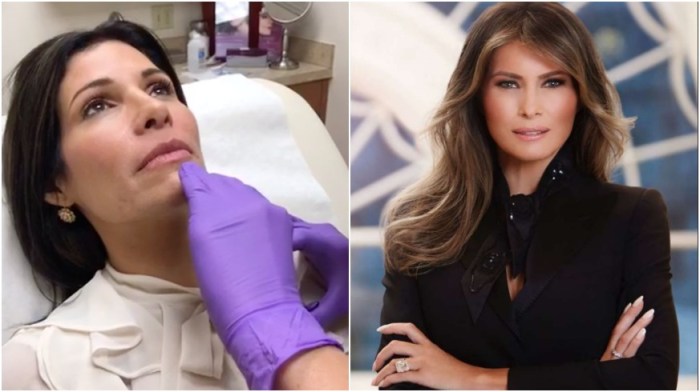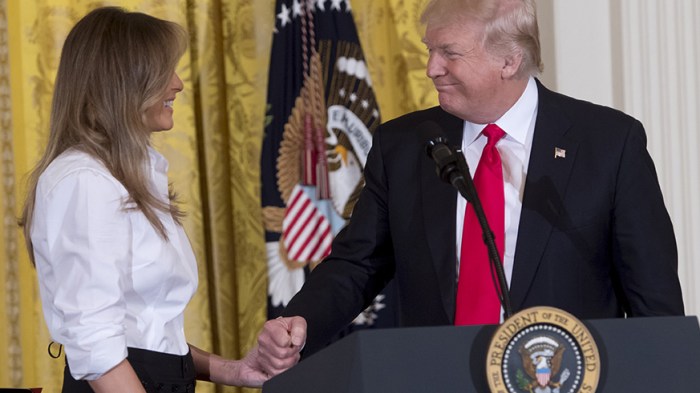First lady Melania Trump’s parents were granted U.S citizenship today, likely through an immigration process President Trump says he wants to end.
Viktor and Amalija Knavs, who are from Slovenia, have been living in Washington, D.C., with green cards, which allowed them to live and work indefinitely in the United States.
“It went well and they are very grateful and appreciative of this wonderful day for their family,” said their immigration attorney, Michael Wildes, to CNN.
The first lady’s office had no comment. Melania Trump became a citizen in 2006 after obtaining a green card on a so-called “Einstein visa” for “individuals of extraordinary ability” as a model.
President Trump, whose presidential campaign began with racist remarks against Mexican immigrants, has called repeatedly for an end to “chain migration,” or what is officially known as “family reunification.” In that process, recent immigrants to the U.S. can sponsor their relatives for green cards. Trump has been criticized for hypocrisy, since his in-laws may be benefiting from that same system.
Wildes would not confirm if Melania Trump was sponsoring her parents. “I can confirm they are green card holders and legal permanent residents of the United States,” he said.
Talking to reporters outside the New York City courthouse where the Knavses underwent their naturalization ceremony, Wildes was asked if they had become citizens through “chain migration.”
“I suppose,” he replied, according to the New York Times. “It’s a dirty — a dirtier word. It stands for a bedrock of our immigration process when it comes to family reunification.”
The sentiment was far removed from President Trump’s constant disdainful remarks about immigrants, whom he says want to “infest” the United States. The Trump administration wants to limit green-card sponsorship to spouses and minor children, dropping the age limit from 21 to 18. Making that change would reduce immigration to the U.S. by up to 50 percent.



















